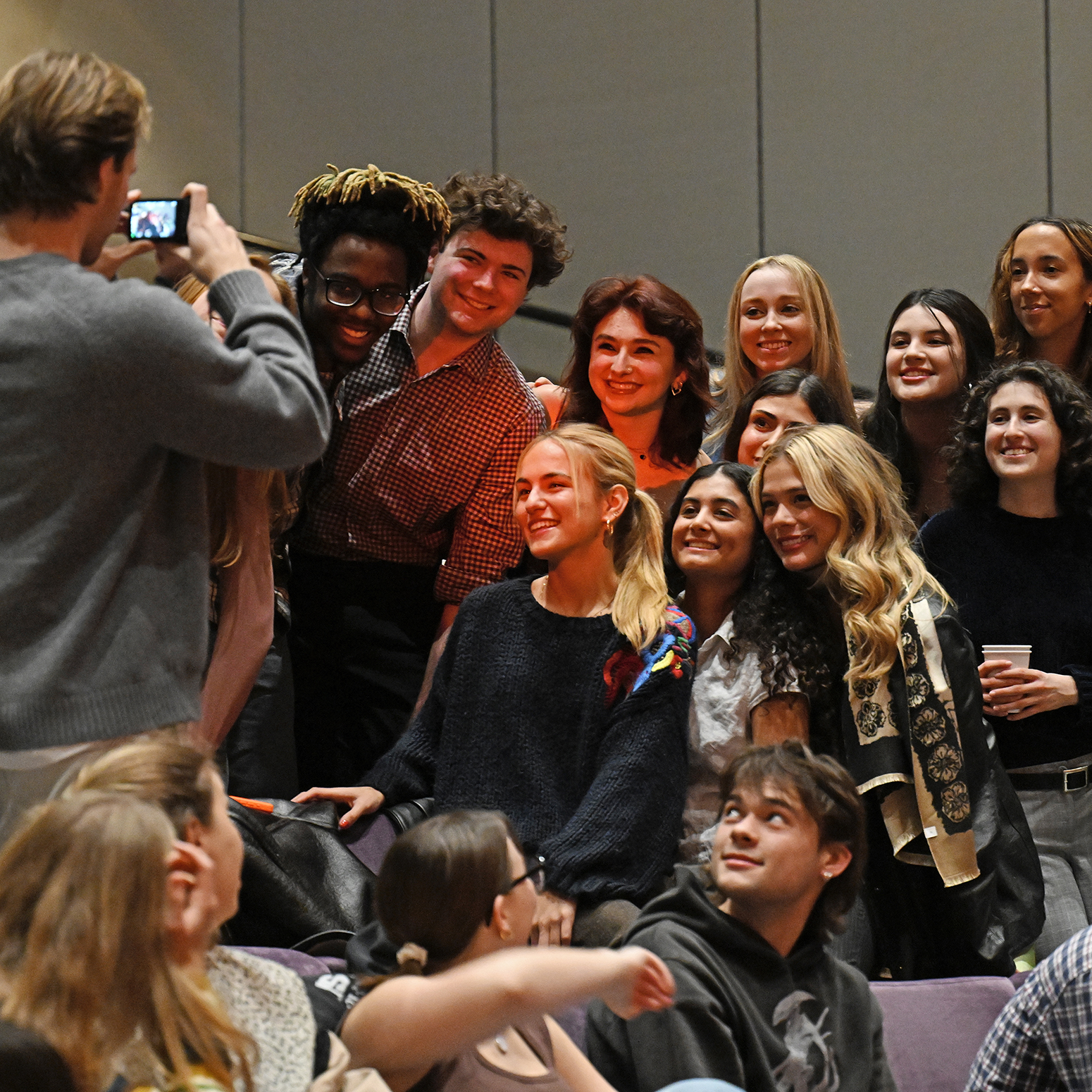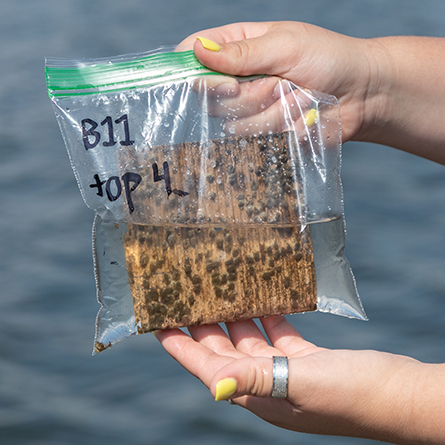
Conn announces 2022 Faculty Awards
Connecticut College’s most prestigious faculty awards were presented at a May 10 ceremony honoring professors who displayed excellence in research, teaching and leadership.
The 2022 winners are:
David Dorfman, Professor of Dance
NANCY BATSON NISBET RASH FACULTY AWARD FOR EXCELLENCE IN RESEARCH

David Dorfman is the recipient of the 2022 Nancy Batson Nisbet Rash Faculty Research Award, presented annually to a faculty member selected on the basis of outstanding scholarly or artistic accomplishments. The award was established in 1995 in memory of Nancy Rash, the Lucy C. McDannel ’22 Professor of Art History at Connecticut College from 1972 to 1995.
Dorfman, an internationally known dancer and choreographer who received his master’s degree in fine arts from Connecticut College in 1981, received a Guggenheim fellowship in 2005 to continue his research and choreography in the topics of power and powerlessness, including activism, dissidence and underground movements.
Dorfman, who runs the influential David Dorfman Dance company, has been honored with four fellowships from the National Endowment for the Arts, three New York Foundation for the Arts fellowships, an American Choreographer’s Award, the first Paul Taylor Fellowship from The Yard, and a 1996 New York Dance & Performance Award (“Bessie”).
He choreographed the Broadway play Indecent, winning a Lortel Award for “Outstanding Choreography.” His choreography has also been produced at venues ranging from the BAM Next Wave Festival to The Kitchen, The Joyce Theater, Dance Theater Workshop, Danspace Project/St. Mark’s Church, P.S. 122 and Dancing in the Streets. His work has been commissioned widely in the U.S. and in Europe. His work has been commissioned widely in the U.S. and in Europe, including by Bedlam Dance Company (London), d9 Dance Collective (Seattle), and the Prince Music Theater in Philadelphia for the musical Green Violin, for which he won a 2003 Barrymore Award for best choreography.
His most current work is (A)Way Out of My Body.
Jillian Marshall, Senior Lecturer in Psychology
JOHN S. KING FACULTY AWARD FOR EXCELLENCE IN TEACHING
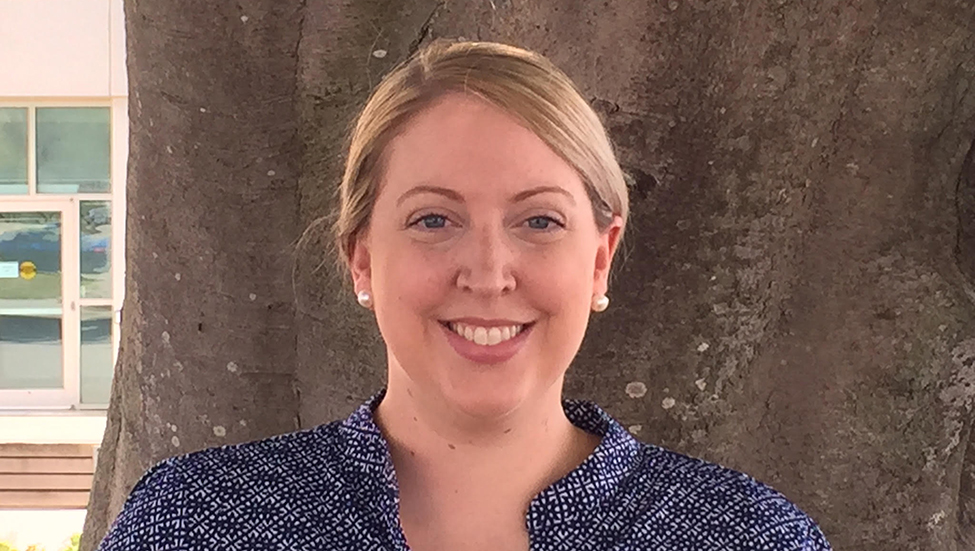
Jillian Marshall is the winner of the 2022 John S. King Faculty Award for Excellence in Teaching. The award was established to recognize teacher-scholars with high standards of teaching excellence and concern for students. It is named for the beloved professor of German whose warmth and humanity touched all who knew him.
Marshall teaches “PSY 100: Introduction to Psychology” and “PSY 100 Labs.” She also advises and assists students in conducting independent studies and honor theses. She has developed and implemented new curricula for both lecture and lab, most recently designing an intensive 5-week, online PSY 100 course for the summer session. Her areas of focus include general psychology and experimental psychology. She is interested in the impact of stress and anxiety on memory formation, and sports psychology and elite performance in conjunction with identity development and well-being.
In a nomination letter, a student wrote: “If I had to pick one word to describe Professor Marshall, it would be passion. She is passionate about her students and about being a teacher. Professor Marshall pours energy and love into all of her interactions with students and makes them feel cared for, respected and welcomed in the classroom. She is engaged in the student experience, often coming to support students at games, concerts and other events. Her genuine interest in the lives of her students sets her apart from the average college professor.”
Marshall is a faculty adviser for both the psychology major and minor and the neuroscience major. She is also co-adviser of the College’s chapter of Psi Chi: The International Honor Society in Psychology.
She serves as chair of the New Faculty Orientation Committee, is a faculty fellow for the Endeavor Faculty Development FYS Advising Seminar, and is a member of the College’s Institutional Animal Care and Use Committee. She is Green Dot trained through the Office of Sexual Violence and Prevention Advocacy and trained in Gatekeeper Suicide Prevention through Student Counseling Services. Marshall and her PSY 100 students also support the local community each semester by participating in the Walk to End Alzheimer’s in the fall and the Walk for Multiple Sclerosis in the spring.
Christopher Hammond, Professor of Mathematics
HELEN BROOKS REGAN FACULTY AWARD FOR EXCELLENCE IN LEADERSHIP
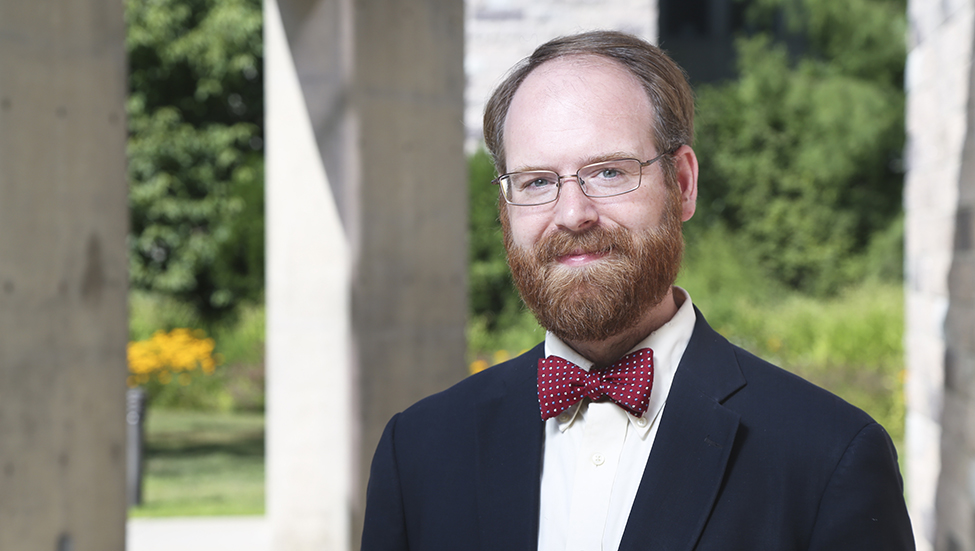
Christopher Hammond is the recipient of the 2022 Helen Brooks Regan Faculty Leadership Award, presented annually to a tenured faculty member whose outstanding service in a leadership role exemplifies the College’s commitment to shared governance, democratic process and campus community development.
At Connecticut College, much of Hammond’s research belongs to an area of analysis known as function-theoretic operator theory. In essence, this subject seeks to relate problems of current interest in operator theory to questions in the more “classical” context of complex analysis. (This type of intersection is a common theme throughout mathematics, and greatly enriches the aesthetic dimension of the discipline.) Hammond’s own work pertains to a particular class of vector spaces whose elements are analytic functions, and certain linear transformations on these spaces. In recent years, Hammond has also developed an interest in expanding the scope of certain series convergence tests, particularly Raabe’s test and Jamet’s test.
In support of Hammond’s award, a nominator wrote that “Professor Hammond is involved in so many integral ways related to the curriculum that I’m never sure in which role he is acting. In fact, I’ve come to suspect his service and leadership aren’t functions of any particular job at all; I believe he gives so much to the College and his colleagues simply because he is a good person.”
While pure mathematics occupies a great deal of Hammond’s attention, he is delighted whenever he can find connections between mathematics and the arts. He has given several talks on Dante’s use of mathematical imagery in the Divine Comedy, as well as a lecture on the place of science and mathematics in Gulliver’s Travels.
Hammond’s publications include the papers “Composition–differentiation operators on the Hardy space” and “Normality and self-adjointness of weighted composition–differentiation operators.” He has given numerous talks on his research, most recently at the Northeastern Analysis Meeting (NEAM) in Syracuse, New York.
He has taught a variety of courses at Connecticut College, and has volunteered to teach math at the York Correctional Institute in Niantic, Connecticut’s only correctional facility for women.
Carla Parker-Athill, Assistant Professor of Biology
HELEN MULVEY FACULTY AWARD FOR FOSTERING STUDENT ACHIEVEMENT
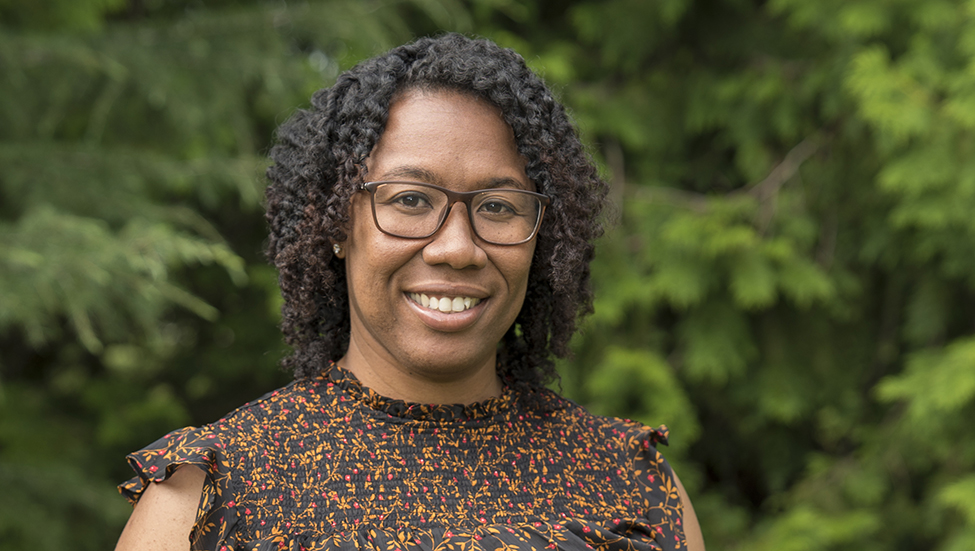
Carla Parker-Athill is the 2022 winner of the Helen Mulvey Faculty Award, presented to an assistant professor who regularly offers classes that challenge students to work harder than they thought they could and to reach unanticipated levels of academic achievement.
Parker-Athill is interested in understanding the developmental impact of early-life environment on behavioral, neurological and immunological outcomes. Her current work on the neurobiology of stress focuses on how early life experiences of stress and/or trauma impact learning and behavior. Her research focuses on understanding the molecular basis of stress, and how hormones produced during stress, such as cortisol, regulate lineage specification in neural stem cells; synapse formation; and behavior and learning.
Parker-Athill has directed laboratories and mentored student researchers in projects aimed at understanding how environment influences behavior on a molecular level, and has conducted lectures that range from non-majors biology, cell biology and genetics, animal physiology, and advanced seminars in the biology of behavior.
In support of the nomination, a colleague wrote that Parker-Athill’s “assignments provide an avenue for students to engage in this from where they are at, but pushes them toward reconsidering their perspectives and intersections of society and scientific problems more deeply, which is incredibly powerful for the possibility of growth and further engagement. She also shared approaches she used in the laboratory section to challenge students to think creatively in the design of their projects and experiments.”
Parker-Athill’s other work includes understanding the role of the immune system in neuropsychiatric and neurodevelopmental disorders such as Autism Spectrum Disorder (ASD) and obsessive-compulsive disorders (OCD). Her graduate work examined the developmental impact of prenatal infection on behavioral, neurological and immunological outcomes as a model of Autism Spectrum Disorders, while her postdoctoral work focused on understanding the role of immune activation and the pathology and symptom course of OCD.
She is a member of the Society for Neuroscience and an active member of the Society for Advancement of Chicanos/Hispanics and Native Americans in Science.
